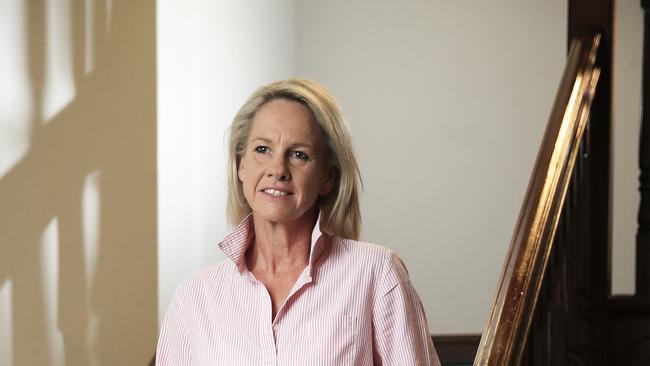Universities Accord review is a ‘once in a generation’ opportunity

Education is a game-changer. It drives growth, productivity, and social stability. It provides opportunities for people to think, learn and grow. For people to lift themselves into more positive circumstances. Opportunities for people to participate in the workforce in a way that allows them to have the greatest reward for their endeavours.
That fact that education is a game-changer is no more apparent than in the regions. Which is why the accord review is so important.
Regional, rural and remote communities drive the nation. They are the engine room of the economy. Industries like agriculture and mining drive real wealth creation. In exports alone, agriculture, forestry and fisheries deliver about $75bn to the nation’s economy; mining, resources and energy about $450bn. Many of those industries will need to change and adapt into the future. The emergence and expansion of the renewables industry creates enormous opportunities for the regions to deliver further for the nation’s economic strength.
And that just touches the surface of the industries and businesses in our regions that deliver hand over fist for the nation.
These industries need people. People who see the incredible way of life on offer of living in regional, rural and remote communities. People who recognise the value of community spirit and all the positives that living in those regional communities brings. These people need to be skilled people. Skilled people who will be able to adapt, accommodate change, and use their knowledge and expertise to ensure those industries and businesses in which they work – that are the backbone of the nation – are as efficient and productive as they can possibly be.
And this is where education comes in. The power of education.
We should be home-growing our workforce in regional, rural and remote Australia as much as we possibly can. And at the same time providing quality training and education in the regions for those who may want to pursue a life in the city.
The accord panel has had a key focus on under-represented cohorts in tertiary education. People from low-SES groups, first in family, those with a disability, First Nations people. And regional people.
People living in the regions deserve to have every educational opportunity they need to reach their full potential. Which is why the accord panel has such a focus on the disparity of education delivery and outcomes between regional and metropolitan, and what can be done to address that disparity.
The panel has heard from many regional stakeholders. We’ve heard from regional students, regional universities, and regional vocation, education and training providers. Regional community leaders and regional industries. About the challenges they see in receiving or delivering education in the regions, and what solutions can be found to improve circumstances and outcomes.
The interim report released by the panel highlights the significant social and economic contribution regional universities make to their local communities, and rightly so. The regional education bedrock provided by those universities contributes to the social balance of the nation.
I’m yet to hear anyone say all people currently living in the regions should have to move to the cities. It would be nonsensical. We want people to live there. We need people to live there. Which is why governments have to take responsibility to support the regions where it is required.
It would also be nonsensical for people to lose the opportunity to choose to study in the regions, which is why a strong, sustainable tertiary education sector in regional, rural and remote Australia is imperative.
The interim report reflects a number of the challenges that have been raised by regional universities with the panel. It also contains suggested solutions to those challenges that have been put forward for consideration, including a universal service obligation, a reframed and repurposed regional loading, greater consideration of the benefits provided by regional universities and attaching a value to those benefits, and what has been described as one of the spiky ideas – a single national regional university. An idea that I believe has merit and should be explored.
I would encourage those with a view about the solutions to the challenges being faced in regional tertiary education to be involved in the consultation process about to begin post the interim report.
Recommendations will be put forward in the final report in December. We certainly don’t know yet how those recommendations will look – that will be a result of further discussion and consultation. One thing we do know is that while appropriate funding is vitally important, just focusing on more money will not provide the answers we need to address the disparity in education delivery and outcomes between city and country.
We need to think differently. We need to think cleverly. We need to think boldly. Carpe diem.
Fiona Nash is the Regional Education Commissioner and a member of the Australian Universities Accord panel.



Carpe diem. Seize the day. The Australian Universities Accord review of higher education is a once in a generation opportunity that must be seized to ensure the future prosperity of regional, rural and remote Australia.